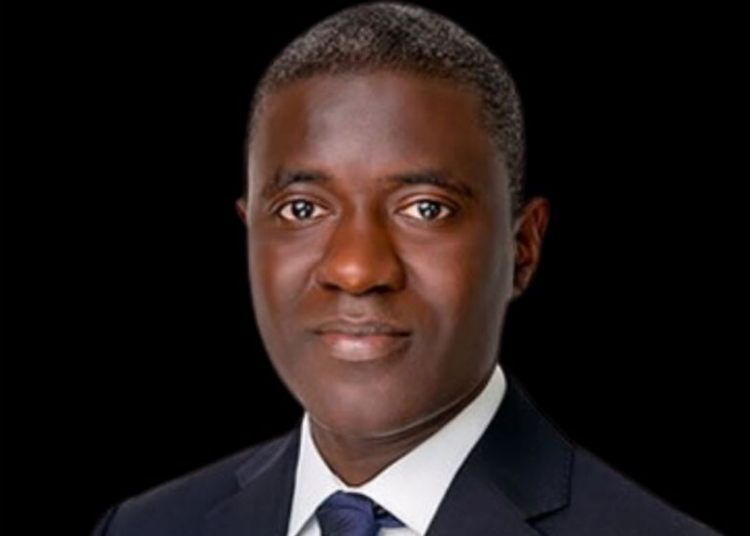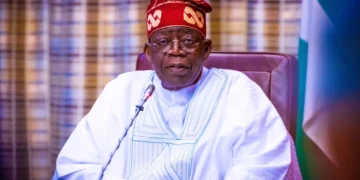The primary duty of the Nigerian Communications Commission (NCC) is to create an enabling environment for competition among operators in the industry as well as ensuring the provision of qualitative and efficient telecommunications services throughout the country.
Suffice it to say that, as of today, only four operators (MTN, Airtel, Glo and 9Mobile) in the ICT sector, are providing telecommunications services to the over 200 million population of Nigeria. This has led to 114 access gaps with some 25 million people still without basic telephony service, according to data from NCC.
While broadband coverage to unserved areas is critical to ensuring delivery of quality internet services to every Nigerian, irrespective of where they are, the Nigerian National Broadband Plan 2020 to 2025 document report revealed that 31,160,000 Nigerians live in areas without telecommunication coverage.
The absence of telecommunication coverage has provided a cover for criminal activities and insecurity in these unserved areas, NCC revealed.
MVNOs To Bridge the gap
To avert the trend in the country, the commission, on the 11th August 2022, notified the public that it would be issuing the Mobile Virtual Network Operators License (“MVNO License”) which would improve the telecommunication output of the country, enable the expansion and availability of quality mobile coverage, and close the gap to the unserved/underserved Nigerian population. NCC also issued the License Framework for the Establishment of Mobile Virtual Network Operators in Nigeria.
The Commission defined MVNO as a wireless communication service provider that resells mobile network services bought at wholesale prices from Mobile Network Operators (MNO), such as 9mobile, Airtel, MTN and Glo, for discounted amounts to end users and customers.
Pursuit to the Nigerian Communications Act (NCA 2003), Licensing Regulation 2019, and other subsidiary regulations, the commission through the MVNO, has created an enabling environment where various players provide diverse services based on licenses, issued by the commission.
“In its drive to create enabling environment, the Commission has introduced MVNOs license that will generate employment and bridge the gap between the unserved and the underserved in the society. It will also further engender competition and provide choices for telecommunication consumers,” the Commission explained.
In Nigeria, the NCC has so far licensed 43 companies as MVNOs and they are expected to start rolling out their services within one year of obtaining their licenses. It is anticipated that the entry of the MVNO, which would use the MNOs‘ current infrastructure, will result in competitive offerings in the telecom sector and reduce call and data rates for customers, especially at rural areas
Challenges of rolling out services
Sadly, it has been over 10 months since the MVNOs obtained their licenses, yet, nor of them have been able to tap into the global MVNO market which has risen to $67.54 billion in 2020 and it is expected to reach $123.40 billion in 2028, LEADERSHIP has learnt.
The MVNOs have listed profitability challenge, balancing competitiveness and sustainability due to limited pricing flexibility, fostering technological advancements innovation constraints among others, as challenges that have marred their rollout of services at unserved and underserved communities, across Nigeria.
As of June 2014, 943 MVNOs and 255 Mobile Network Operators (MNOs) sub-brands were active worldwide. This represents a total of almost 1,200 mobile service providers worldwide hosted by MNOs, up from 1,036 in 2012.
According to Fortune Business Insights, the global MVNO market size is projected to rise from $67.54 billion in 2020 to $123.40 billion in 2028, at a CAGR of 7.9 per cent during the forecast period, 2021-2028.
Possible solutions
Towards a vibrant ecosystem capable of enhancing business operational capabilities within the telecom industry, experts have called for an innovative approach from the MVNOs for a sustainable business environment.
For instance, the chief executive officer, Wireless Technology Labs, Satya Mekala, charged MVNOs in Nigeria to deploy Value Added Services (VAS) for the sustainability and profitability of their business operations in Nigeria’s ICT sector.
According to Mekala, MVNOs will bring innovation to a country a lot more than a mobile operator or anything. MVNOs have the advantage of offering services in several areas of the economy, including education, agriculture, and rural development, among others, he averred.
In his words,“IMobile operators are very rich, and they’re already making lots of money. It’s an unnecessary waste of time for MVNOs to compete with them. There are innovations that are not happening with mobile operators.”
Mekala also stressed that collaborative efforts among MVNOs enabled them to pool expertise, tackle challenges collectively, build profitable ventures, and deliver essential value-added services crucial for the populace and the nation.
In his presentation, the vice president of TecnoTree, Himmat Gill, quoted that the global MVNO market size was worth $84.6 billion in 2023, and it is expected to grow at a compound annual growth rate of 6.7 per cent to reach $116.8 billion by 2028. He also noted that the MVNO market is 50 per cent distributed in Europe, 15 per cent in APAC, 15 per cent in the USA, and it is only two per cent in Africa.
Speaking on some of the challenges, Gill said fierce competition in an oversaturated market, limited control over network quality and service prioritisation, and navigating through diverse regulatory landscape across regions may impend MVNO success.
However, market differentiation serves as a potential strategy for MVNOs to overcome these challenges, he said. Stressing that, for MVNOs to attract and retain customers, the need to distinguish themselves from competitors cannot be overemphasized. Market differentiation, according to him, involves innovative service offerings, targeted niche markets, enhanced customer experience, and strategic partnerships.
In the same vein, PortaOne chief executive officer, Andriy Zhylenko tasked Nigerian MVNOs to identify their target audience, design niche-tailored VAS packages, and pick solution component that provides maximum freedom for in-house innovation.
Echoing Satya’s words, he urged MVNOs not to sell phone calls, rather, they should offer solutions for growth and harvest IOT matket growth.
On his part, Nordic eSIM chief executive officer, Rune Holbeck urged MVNOs to embrace and leverage eSIM technology in order to meet customers’ demand for flexibility, seamless connectivity, and digital solutions.
While stating that the rising adoption of IOT-connected devices and customer electronics is driving eSIM market expansion, Holbeck noted that eSIM technology positions MVNOs to stand out in Nigeria‘s crowded telecom sector by offering innovation, digital-first services.
As part of the competitive advantage in the Nigerian market, the Nordic eSIM Boss said the adoption of eSIM technology by MVNOs will promote its rapid market entry, enhanced security features and helped target
niche segments.
„With eSIM, MVNOs can launch new services faster, without the logistical challenges of distributing physical SIM cards. eSIM provides superior security compared to traditional SIMs, appealing to privacy-conscious customers and enterprises, „Holbeck said.
As a solution portfolio company, LATRO‘s director of Solution Architecture, Elmehdi Erroussafi, said operators need to be protected from various types of frauds, including bypass fraud, using advanced detection and prevention system.
Offering its innovative managed services, LATRO said its revenue assurance for MVNOs is designed to be flexible enough to add any specific need that operators might need based on the market environment. Erroussafi added that for MVNOs operations to be a success, they need a comprehensive framework for detecting revenue leakages.
NCC’s reaction
In its reaction, the NCC, said the MVNOs are still in the early stage, as the industry is growing. “We have issued license to MVNOs. As they begin to implement their plans, we expect more collaboration with the MNOs and provision of more choice for consumers. Of course anything new takes time. There will likely be teething issues. We sat with them early this year, to deliberate on their challenges and proffer a way forward. So we expect to see more progress in that space over the next few years.
“We need to stabilize that growth in the ICT sector and we believe the MVNOs have a huge role to play, as they will help in taking digital services closer to the people at the underserved and unserved communities in Nigeria.”
We’ve got the edge. Get real-time reports, breaking scoops, and exclusive angles delivered straight to your phone. Don’t settle for stale news. Join LEADERSHIP NEWS on WhatsApp for 24/7 updates →
Join Our WhatsApp Channel










